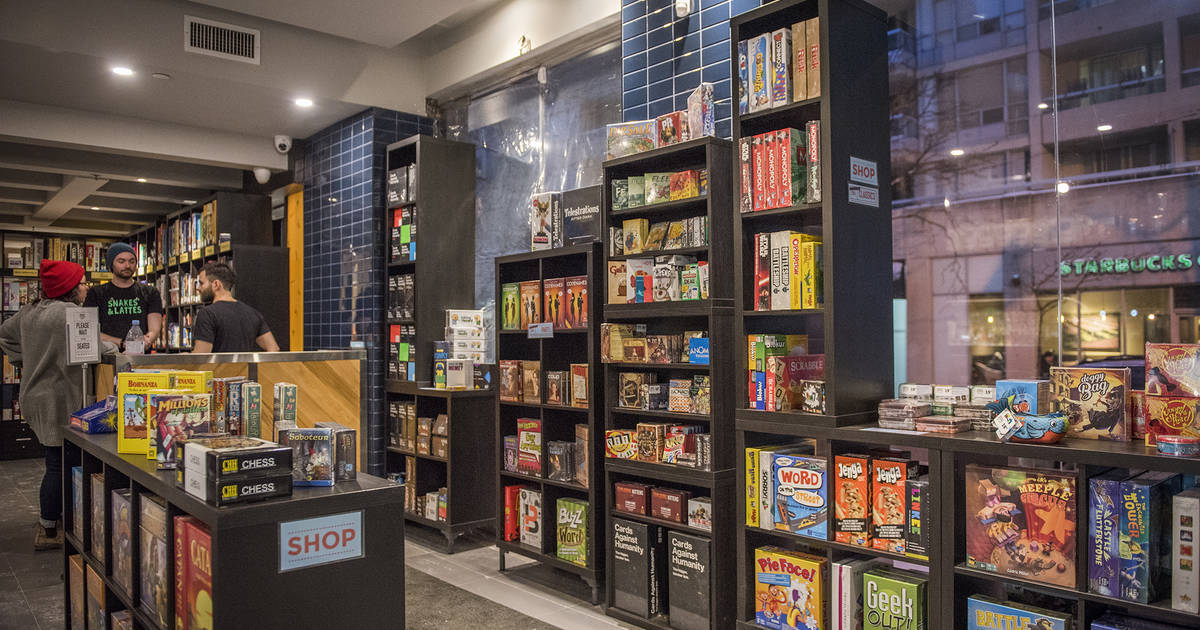Board games have experienced a significant resurgence in recent years, with millions of people worldwide rediscovering the joy of playing tabletop games. Whether it’s strategic war games, party games, or cooperative adventures, the hobby has become a major social activity. As more people delve into this rich world of gaming, the demand for physical stores where they can browse, buy, and even play these games has grown. Running a board game store, however, is more than just selling games—it’s about building a community, offering expertise, and creating a welcoming space. In this article, we’ll cover everything you need to know about running a successful board game store, from inventory to marketing to building a loyal customer base.
1. Choosing the Right Location
One of the most critical factors in running a successful board game store is location. You want to be in a place that is easily accessible, has plenty of foot traffic, and ideally, a nearby community of gaming enthusiasts. Think about your target demographic—families, young adults, and hobbyists—and try to choose a location that makes it easy for them to visit regularly.
While high-traffic areas may seem ideal, they often come with higher rent. Therefore, it’s important to find a balance between affordability and visibility. Some of the best locations for board game stores include near shopping malls, colleges, or in areas with other entertainment-based businesses like movie theaters and cafes. Partnering with local cafes or businesses to cross-promote can also help drive traffic.
2. Curating a Diverse and Engaging Inventory
A board game store’s success heavily depends on its inventory. Offering a diverse selection of games that cater to various tastes and skill levels is key. There are several categories of board games you should consider stocking:
- Classic Games: Chess, Monopoly, Scrabble, and Risk are staples in any board game store. These games appeal to customers who are just entering the hobby or looking for nostalgic favorites.
- Family and Party Games: Games like Catan, Ticket to Ride, and Codenames are essential. These games are easy to learn, quick to play, and suitable for families or casual game nights with friends.
- Strategy Games: For more experienced players, games like Gloomhaven, Terraforming Mars, and Twilight Struggle offer deep, strategic experiences. These games appeal to hobbyists and can become anchor products that draw in dedicated gamers.
- Cooperative Games: In games like Pandemic, Forbidden Island, and Spirit Island, players work together to achieve a common goal. Cooperative games are gaining popularity and should definitely be part of your inventory.
- Collectible Card Games and Miniatures: Titles like Magic: The Gathering, Warhammer 40,000, and Pokémon TCG have devoted fanbases. Stocking these games, along with accessories such as card sleeves, dice, and miniatures, can attract collectors and hobbyists.
Regularly refreshing your inventory with new releases is essential to keep your store interesting. Partnering with game publishers and distributors ensures you have the latest and hottest titles.
3. Creating a Community Space for Gamers
A key aspect of running a successful board game store is fostering a sense of community. A welcoming environment where gamers can gather to play, chat, and connect with others who share their passion is a huge draw. Here are some ways you can create a community space:
- Game Tables and Play Areas: Dedicate part of your store to tables where customers can sit down and play games. Whether it’s a casual pick-up game or a tournament, having space to play games encourages customers to spend more time in your store and can result in more sales.
- Demo Games: Offering demo games or a “game library” where customers can try before they buy is a great way to engage them. This also allows people to explore new games without the commitment of a purchase, which often leads to sales after they’ve enjoyed the game.
- Events and Tournaments: Hosting regular game nights, tournaments, and special events will keep customers coming back. Organize weekly game nights where participants can try out new games, or competitive events for collectible card games like Magic: The Gathering. You can even offer exclusive promos or discounts during these events to encourage purchases.
- Themed Nights: Consider hosting themed gaming nights, like role-playing game (RPG) sessions for Dungeons & Dragons or Pathfinder fans, or a night dedicated to cooperative games. Themed nights can bring in niche groups and foster stronger community bonds.
4. Building an Online Presence
In the digital age, having an online presence is crucial for any business, and board game stores are no exception. A robust online presence allows you to reach a wider audience and extend your sales beyond your physical location. Here’s how to build a strong digital presence:
- Website and Online Store: Creating a website with an online store will allow customers to browse and purchase games from the comfort of their home. Be sure to feature an easy-to-navigate website with detailed product descriptions, high-quality images, and an easy checkout process.
- Social Media Engagement: Platforms like Facebook, Instagram, and Twitter are excellent tools to interact with your customers. Post updates on new game releases, upcoming events, and store news. Sharing content like reviews, how-to-play videos, or game night photos can generate engagement and help build a sense of community online.
- Email Marketing: Collecting email addresses from customers allows you to send out newsletters, promotions, and event announcements. Offering exclusive discounts or early access to sales for email subscribers can incentivize customers to sign up and stay connected.
- Online Events: During times when in-person gatherings might not be possible, consider hosting virtual events such as online board game nights, live-streamed game tutorials, or digital tournaments. These virtual gatherings can still foster community and keep customers engaged.
5. Customer Service and Knowledgeable Staff
Customer service is the cornerstone of any successful retail business, and it’s particularly important for board game stores, where customers often rely on expert advice. Ensuring your staff is knowledgeable about the games you stock is essential. A good board game store employee should be able to:
- Explain the rules of various games.
- Recommend games based on a customer’s interests or skill level.
- Help customers navigate your store’s inventory and find the best option for them.
Being approachable and offering a positive shopping experience will keep customers coming back. Remember, your staff can make or break a sale, so investing in training them on the different games and offering them opportunities to engage in gaming themselves is a good idea.
6. Offering Extras and Accessories
Apart from selling board games, you can also offer a variety of related products that enhance the gaming experience. Accessories such as dice, card sleeves, playmats, board game organizers, and miniatures are all great items to stock. Offering snacks and drinks in-store can make longer gaming sessions more enjoyable for customers who are playing on-site.
Additionally, you can consider carrying other merchandise like T-shirts, posters, or art from popular games. These add-on items can increase your average sales per customer.
Conclusion
Opening and operating a successful board game store requires more than just selling games. It’s about fostering a welcoming environment, building a loyal community, and creating a space where people can explore, play, and share their love for games. By offering a diverse inventory, engaging with your local gaming community, and leveraging digital tools to extend your reach, your board game store can become a beloved local destination for tabletop enthusiasts. Whether your customers are seasoned gamers or newcomers, your store can be the place where everyone finds their next favorite game.

